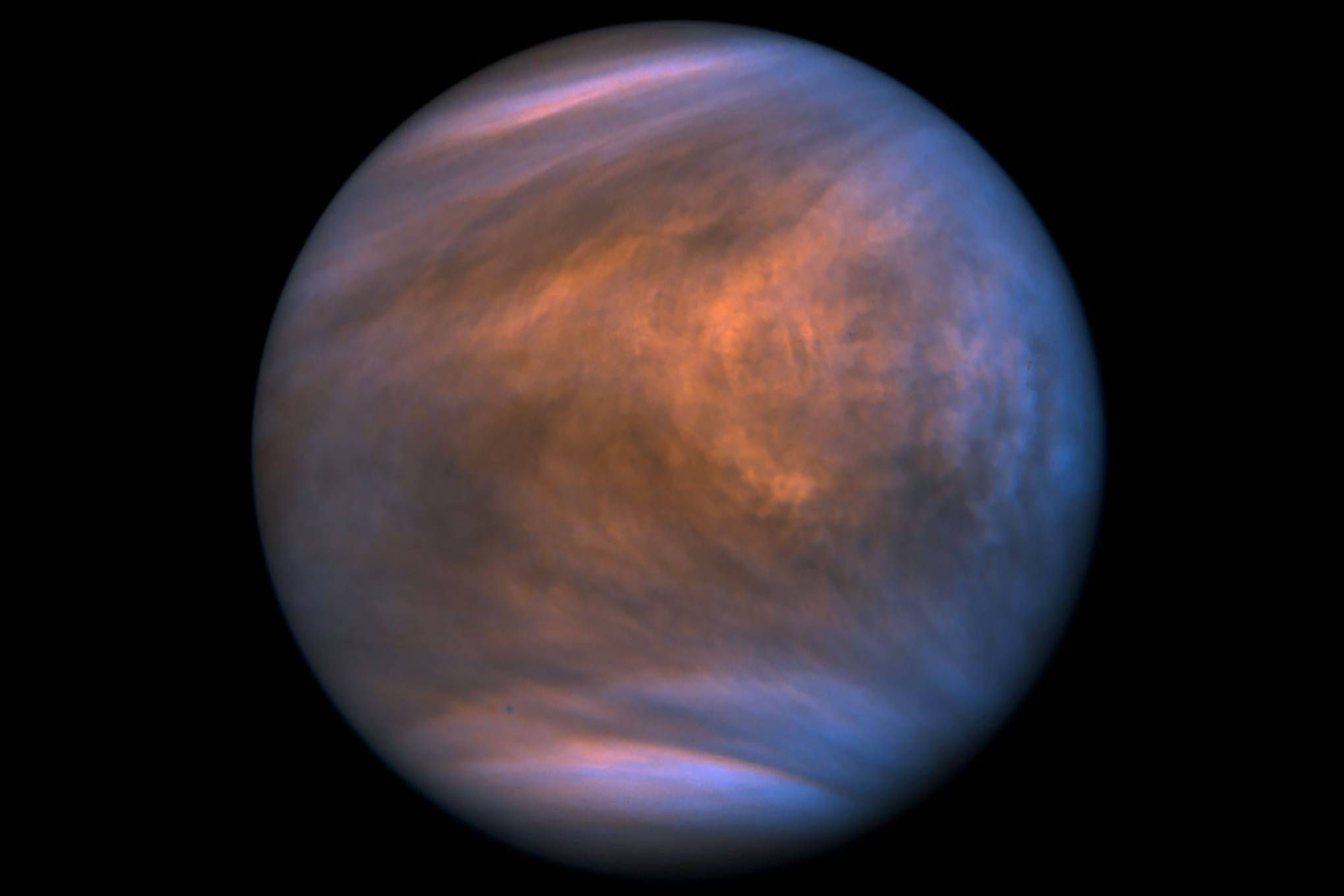
Search for Aliens Should Begin on Venus
Article by Joel Day November 14, 2020 (express.co.uk)
• The search for microbial life has largely been focused Mars and Jupiter’s moons, for example, Europa, which is thought to have stores of frozen lakes and freshwater. Venus had rarely crossed the minds of scientists. Then a few months ago, Researchers at Cardiff University announced that they’d found traces of phosphine – a key biological signature of life – in Venus’ atmosphere.
• The discovery was a paradox. Venus’ surface is extremely inhospitable: hot enough to melt lead. Sulphuric acid makes up most of the planet’s atmosphere. W such high temperatures and lack of oxygen, the phosphine gas should technically disappear within minutes of popping into existence.
• It is widely accepted that billions of years ago Venus, Earth and Mars had similar genetic makeup, formed from the same rocks and metals. However, it is presumed that ‘climate catastrophes’ devastated Venus and Mars. Today, Venus appears to be the antithesis to everything that sustains life. The atmospheric ground pressure in Venus is as if you were beneath 900m of water on Earth. The atmosphere acts more like a fluid than a gas. It is so dense that winds can move small rocks with ease.
• “Venus is an extremely cloudy world: only 20 percent of incident sunlight percolates down to the surface,” notes British astronomer Dr. Mark A. Garlick. The presence of dark patches or bands, so-called ‘unknown absorbers’, discovered more than a century ago, block most ultraviolet light and a portion of visible light, rendering these regions comparatively dark.
• Despite its soaring temperatures, Venus is only a heat trap on its surface. At an altitude of 50km, the atmospheric pressure drops to a temperature comparable to a temperate day on Earth. This is Venus’ habitable zone.
• Dr. Garlick is calling for endeavors into the search for alien life to change tack and focus on Venus, as it “is the easiest to reach”. “At an altitude of 50km, floating habitats would be the ideal launch pad from which to search for signs of life in the clouds,” said Dr. Garlick. “Perhaps our search for extraterrestrial cousins among the planets should begin there.”
• Bacteria swept up in water particles into the Earth’s atmosphere can survive at altitudes as high as 4km. Thus, the proposition that bacteria could survive the higher reaches of Venus’ atmosphere isn’t as ludicrous as it might first seem. The phosphine on Venus could be produced by a process that humans have not yet discovered. This gap in knowledge is the most “exciting” element of the discovery, says Dr. Garlick. “Phosphine, and the unknown substances absorbing ultraviolet light, taken together make a good case for studying (Venus) more closely.”
• Life in these conditions would be “undoubtedly very hardy”, says Dr. Garlick. “But, vitally, not impossible.”
Venus’ surface is extremely inhospitable: hot enough to melt lead, sulphuric acid lingers and makes up the best part of the planet’s atmosphere. Yet, only a few months ago, scientists for the first time found evidence for life on Earth’s scorching neighbour. Researchers at Cardiff University shocked the astronomical community after they identified traces of phosphine – a key biological signature of life – in Venus’ atmosphere.

The discovery was nothing short of a paradox: with soaring temperatures and lack of oxygen the gas should technically disappear within minutes if it ever pops into existence.
Thus, the search for life on Venus had rarely crossed the minds of scientists.
Efforts had largely been focused on Mars and Jupiter’s moons, for example, Europa, which is thought to have stores of frozen lakes and freshwater.
Now, researchers are calling for endeavours into alien life to change tack, and begin closer to home.
Dr Mark A Garlick noted that there are several other places in the Solar System touted as potential abodes of life, but are as of yet undiscovered.
He reasoned: “But among these worlds, it’s Venus that is the easiest to reach.
“At an altitude of 50km, floating habitats would be the ideal launch pad from which to search for signs of life in the clouds.
“Perhaps our search for extraterrestrial cousins among the planets should begin there.”
FAIR USE NOTICE: This page contains copyrighted material the use of which has not been specifically authorized by the copyright owner. ExoNews.org distributes this material for the purpose of news reporting, educational research, comment and criticism, constituting Fair Use under 17 U.S.C § 107. Please contact the Editor at ExoNews with any copyright issue.
Dr. Mark A. Garlick, Europa, Mars, phosphine, Sulphuric acid, Venus